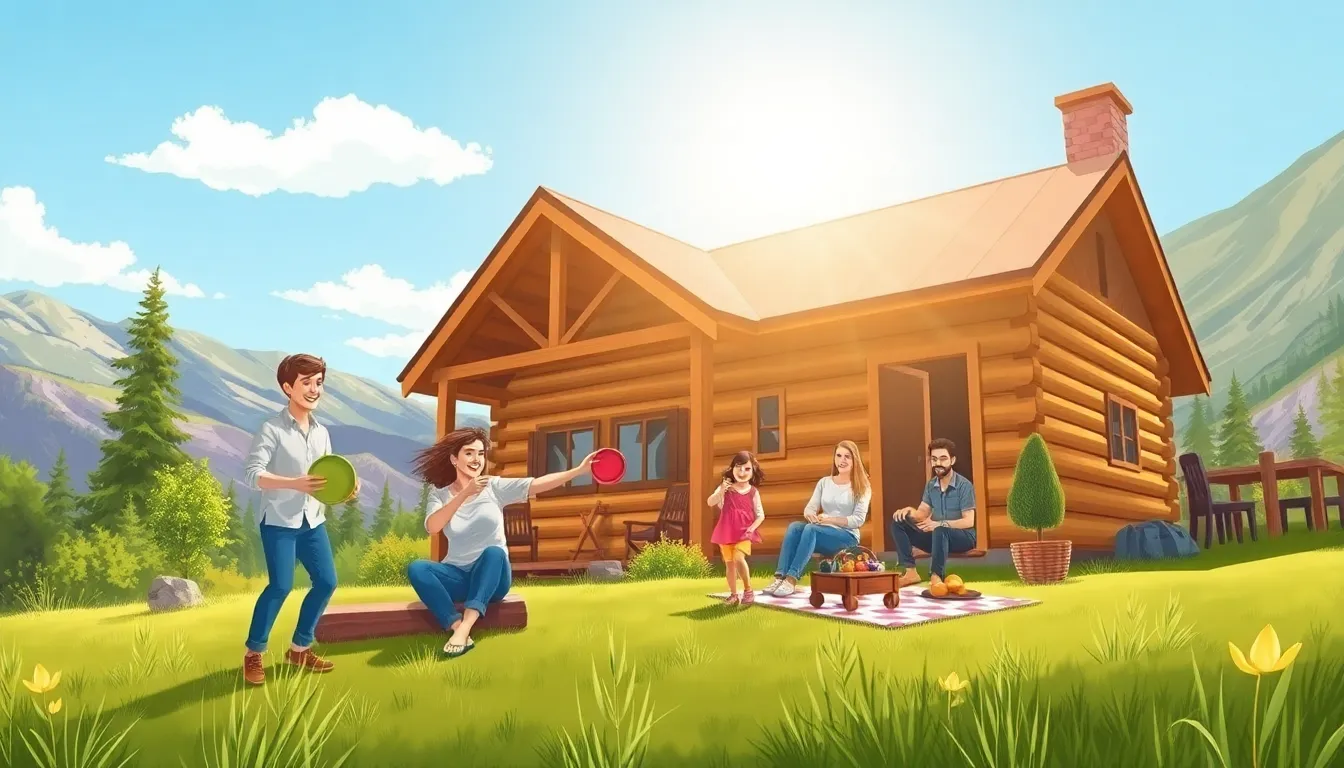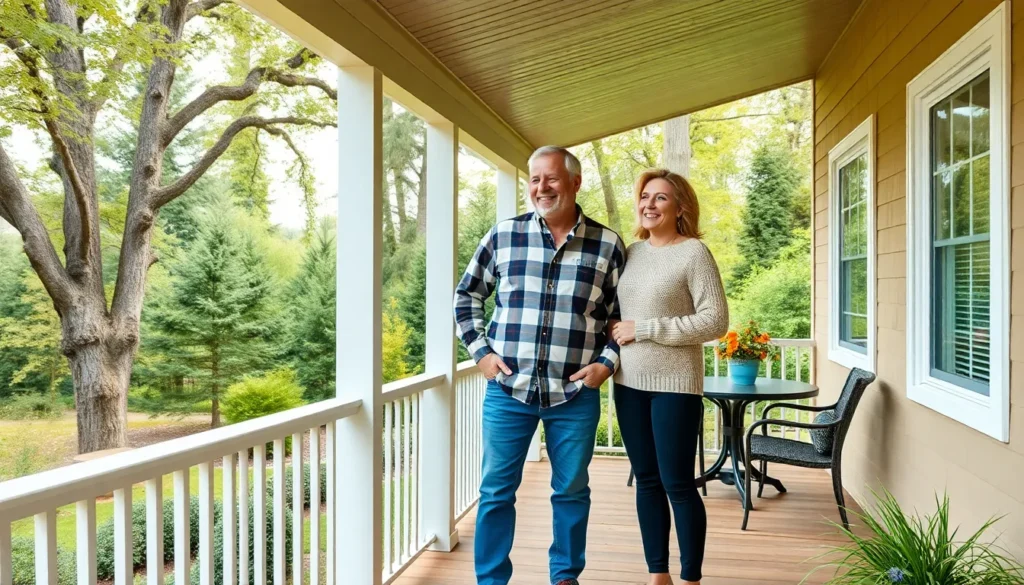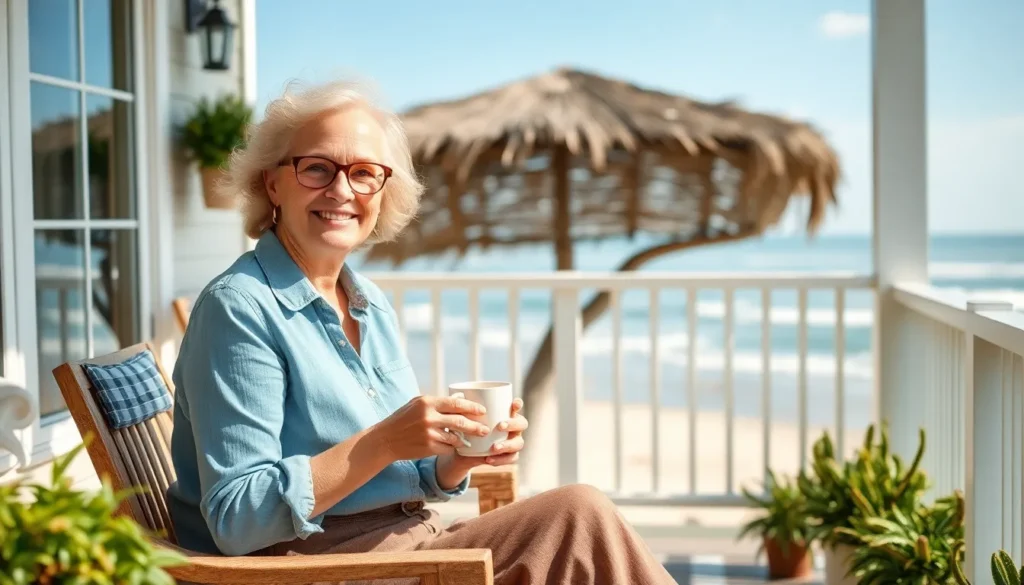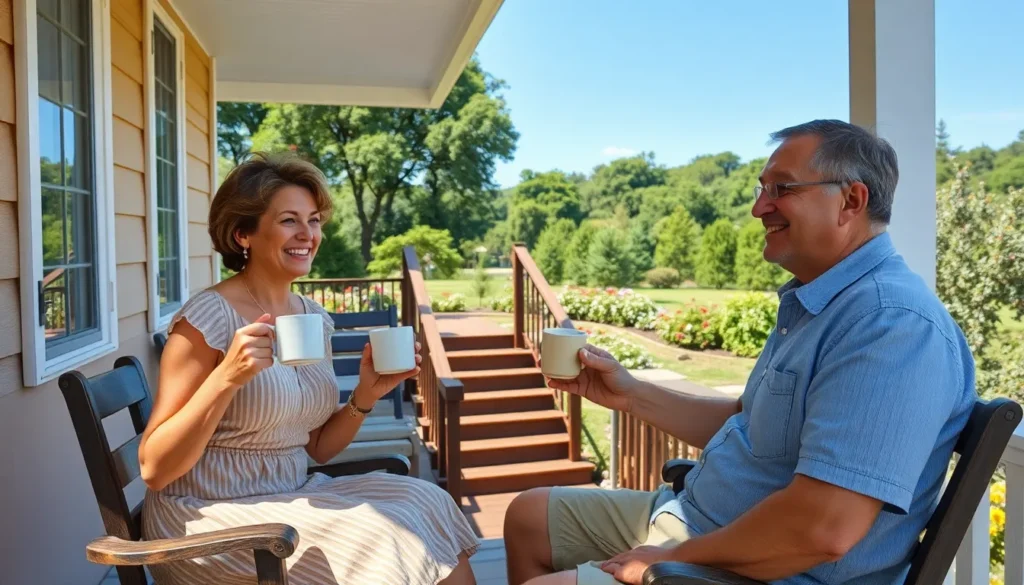Thinking about buying a second home? You’re not alone. Many dream of having a cozy getaway or a rental property that pays for itself. But before diving headfirst into the world of real estate, it’s crucial to weigh the pros and cons. After all, a second home can be a delightful escape or a financial anchor—depending on how you approach it.
Imagine sipping coffee on your balcony overlooking the ocean or hosting family gatherings in a charming cabin. Sounds dreamy, right? But let’s not forget the hidden costs and responsibilities that come with homeownership. Balancing the allure of a second property with the realities of upkeep and expenses can be a tricky dance. So, is it time to turn that dream into reality, or should it remain a whimsical daydream?
Table of Contents
ToggleFactors to Consider Before Buying a Second Home
Evaluating the decision to purchase a second home involves many factors. Assessing both financial and lifestyle implications proves essential.
Financial Implications
Costs associated with a second home extend beyond the purchase price. Expenses include property taxes, homeowners insurance, and maintenance costs. Investors should account for potential rental income and fluctuating market conditions. A mortgage adds another layer of complexity, influencing monthly budgets. Furthermore, unexpected repairs can arise, necessitating a financial cushion. Additionally, comparing mortgage rates facilitates informed choices for financing.
Lifestyle Changes
Owning a second home can significantly alter daily routines. Travel plans may shift, allowing for weekends away or longer vacations. Responsibilities increase with property management, including maintenance tasks and inspections. Hosting family gatherings or creating a retreat fosters social connections. Consideration must also be given to the time commitment involved in upkeep and administration. Whether for personal enjoyment or investment, these changes shape daily life around the second property.
Benefits of Owning a Second Home

Owning a second home offers numerous advantages, making it an appealing option for many. The benefits range from investment potential to personal enjoyment.
Investment Potential
Second homes can serve as lucrative investments. Rental income generated from vacation properties often offsets mortgage payments. Market demand for short-term rentals continues to rise, especially in popular tourist destinations. Property values typically appreciate over time, enhancing overall equity. Tax deductions on mortgage interest and property taxes provide additional financial incentives. Investors can diversify their portfolios, spreading risk across real estate assets.
Personal Enjoyment
Second homes provide a space for relaxation and recreation. Families can create cherished memories during weekend getaways or holidays. Scenic locations often enhance outdoor activities, like hiking or skiing. Hosting friends and family fosters stronger connections and deeper relationships. A personal retreat offers a break from daily routines, contributing to overall well-being. Ownership also allows customization, making the space uniquely suited to personal tastes and lifestyle needs.
Drawbacks of Buying a Second Home
Owning a second home comes with several drawbacks. Evaluating maintenance and management responsibilities is crucial.
Maintenance and Management
Maintaining a second home requires time and effort. Property owners need to handle repairs, seasonal upkeep, and routine inspections. Managing this additional property demands attention, especially if it’s located far from the primary residence. Hiring property management services increases expenses, cutting into potential rental income. Not accounting for this could lead to unexpected financial strain.
Financial Risks
Financial risks pose significant challenges when purchasing a second home. Home buyers must consider fluctuating market conditions that can affect property values. Unexpected repairs and maintenance costs can arise, impacting budgets. Additionally, increased debt from mortgages can limit financial freedom. Rental income often won’t cover all expenses, leaving owners vulnerable in tough markets. Understanding these potential pitfalls is vital for making informed decisions.
Alternatives to Buying a Second Home
Considering options beyond purchasing a second home presents various appealing possibilities. Each alternative offers unique benefits for relaxation or investment.
Vacation Rentals
Vacation rentals allow individuals to enjoy specific locations without worrying about long-term commitments. Through platforms like Airbnb or Vrbo, users can find accommodations that fit their needs for short getaways. Renting enables access to desirable destinations, catering to various group sizes. It also provides flexibility, letting travelers choose where and when to visit based on preferences. Costs often remain lower than buying a second home, avoiding the burdens of maintenance and property taxes. For those seeking adventure or new experiences, vacation rentals serve as excellent options.
Timeshares
Timeshares present an option for those who want to invest in vacation time while sharing costs with other owners. Typically, several people own the same unit, splitting usage throughout the year. This arrangement allows individuals to enjoy properties in desirable locations without the full expense of ownership. Buyers can often customize their stays, choosing specific dates each year. While some see timeshares as a financial commitment, others find the guaranteed vacations appealing. Careful research ensures individuals align their timeshare choice with travel habits and preferences.
Deciding whether to buy a second home involves weighing both the benefits and challenges. It’s essential to assess personal and financial readiness before diving into such a significant commitment. For those seeking a getaway or investment opportunity, the rewards can be substantial.
However, potential buyers must remain vigilant about the responsibilities and costs associated with homeownership. Exploring alternatives like vacation rentals or timeshares can provide flexibility without the burdens of ownership. Ultimately, the choice should align with individual goals and lifestyle preferences, ensuring that the dream of a second home enhances life rather than complicates it.









